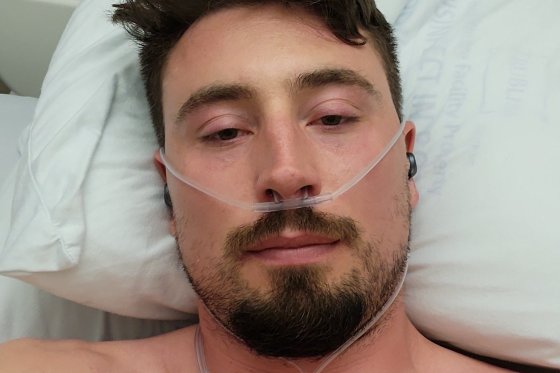| 
Canadians urged to get COVID-19 boosters before potential fall wave On Wednesday, federal health officials came out with a strong push to encourage all Canadians to get booster doses of the COVID-19 vaccine in advance of a possible resurgence of the virus this fall. Canadians are now only considered up to date with their COVID-19 vaccines if they received their last dose within the last nine months, federal Health Minister Jean Yves-Duclos said. To date, only 60 per cent of Canadians have received a booster dose of the vaccine. This came one day after the National Advisory Committee on Immunization (NACI) released new guidance for the fall recommending all Canadians who are at increased risk of serious illness from COVID-19 should be offered a booster dose regardless of the number of booster doses they have previously received. It also said this guidance could also be extended to all individuals between the ages of 12 and 64. Click here to read more. 
Canadian researchers think they've found a key clue to long COVID  A new Canadian research trial looking at patients suffering from post-COVID syndrome has identified a potential key culprit causing some people to continue experiencing breathing issues months after contracting COVID-19. Many long COVID sufferers have been stumping doctors as to what's wrong with them, because routine clinical tests and chest exams come back with normal readings. A team of researchers based at five centres across Ontario have zeroed in on a microscopic abnormality in the way oxygen moves from the lungs and into the blood vessels of long COVID patients in their trial. This abnormality could explain why these patients feel breathless and are unable to perform strenuous activities. To learn more about this long COVID discovery, read Global News health reporter Teresa Wright’s story here. 
Q: Are there any dangers of getting a booster or 4th dose of the COVID-19 vaccine if you are immunocompromised or recently had surgery? The short answer is no. As long as you’re not allergic to any of the ingredients in the vaccine and if you’ve had two or three other doses of the vaccine previously, there shouldn’t be any concern, says Dr. Omar Khan, a professor of biomedical engineering and immunology at the University of Toronto. “You should talk to your doctor and figure out if that is a factor for you, but if you’ve received the vaccine before you had three doses, you’re probably fine,” he said. But timing may be an important factor as to when you should get your booster shot. It’s important to give your body enough time to recover from the surgery before getting a vaccine, Khan said. “If anything happens, your doctor will be able to tell that it was from the vaccine and not because it’s related to your surgery.” How much time you should wait would depend on a number of factors, including what kind of surgery you had, your age and risk factors and other medical considerations. It’s best to consult with your physician on this further, Khan suggests. Ultimately, three doses are recommended as the “primary series” for immunocompromised individuals and a fourth dose is, in fact, recommended for those with compromised immune systems, says Dr. Scott Halperin, director of the Canadian Center for Vaccinology at Dalhousie University. “Recent surgery is not a reason not to be immunized if a person is due for their next dose. As soon as someone is feeling better and ready to leave the hospital or at home, they can be safely and effectively immunized,” he said. |
No comments:
Post a Comment